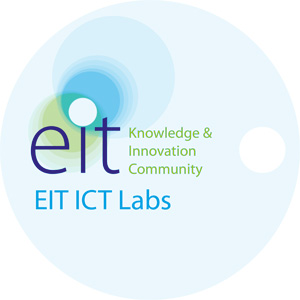
Call for papers
In the real-time Web, the latest evolution of the Web, information is generated very quickly, consumed by millions of users, and updated rapidly by others through commenting, replying, transferring, etc. This is practiced by people who differ in culture, knowledge, background, ideology. Moreover, information generally comes from several channels and is sent out to different ones. This is amplified by the social networking phenomenon, the social Web, which is nowadays a well established set of technologies, based on which users and service providers can exchange messages through an interaction network, share information and collaborate, advertise a product, create communities and influence them, etc. Besides, there is an abundant literature regarding the different aspects of social networks be it their construction or the detection of nodes playing specific roles.
However, it is well established that there is currently unclear understanding of the laws governing these social networks, in particular in the way they evolve over time. Thus, it is difficult to draw a clear image linking the existing models of social networks and the real underlying social mechanisms. As a result, there is a big gap in the evaluation and the concretization of most of the research efforts in this area. Furthermore, due to the growing complexity of digital social networks and the huge quantity of new data available everyday, it becomes crucial for the researchers to provide a clear understanding of the dynamics of these networks. It also becomes important for the community to not only understand what is happening currently in the network but also to predict the next evolution and monitor the trends in the network. To efficiently analyze these networks, it is important to be able to predict the dynamics in its different forms: the content evolution (i.e., hot topics evolution), network structure (e.g., creation of new relations), and information diffusion, influence evolution, etc.
Following the success of the last year’s version of this workshop (http://eric.univ-lyon2.fr/msnd/2012/), we are re-conducting it this year to attract more researchers and make the event a central location where researchers working on the issues of mining social network dynamics can meet again to exchange ideas on open problems. We have also extended the topics of interest for this workshop, with a particular interest towards dynamics. And we aims at gathering researchers from the fields of social computing, machine learning, and data mining to think about the obstacles that hurdle the leveraging of understanding and capturing of social network dynamics. We target researchers from both commercial and academic labs to join forces in this exciting area. We intend to discuss the recent and significant developments in the general area of mining social network dynamics and to promote cross-fertilization of techniques. In particular, we aim at identifying techniques from the data mining and machine learning fields that will enable researchers to understand the dynamic phenomena in social networks and social media, as well as specify important directions for the research communities. Understanding, capturing, mining and being able to predict dynamic behaviors is interesting for several areas such as marketing, security, and Web search. To address the above mentioned aspects, we solicit the following topics (but not limited to):
- Information diffusion in social networks;
- Community extraction, analysis, and evolution;
- Detection of (possibly evolving) roles;
- Content evolution and tracking in social networks;
- Social Journalism and news dynamics;
- Social networks affective and sentiment analysis;
- Social media recommendations;
- Information quality and evolution in social content;
- Security and privacy in rapidly evolving social networks;
- Evaluation techniques and benchmarks;
- New challenges in mining social networks;
- Example studies and use cases of dynamics of social networks.
Paper submission
Submissions need to be formatted according to the ACM SIG Proceedings Template. Two types of submissions are welcome: long with a limit of 8 pages or short with 4 pages length limit. We use the EasyChair system for managing submissions, and the link to submit your paper will be provided soon.
Important dates
| Paper submission | March 04, 2013 (EXTENDED!) |
( Passed ) |
| Notification to authors | March 15, 2013 |
( Passed ) |
| Camera-ready versions | March 25, 2013 |
( Passed ) |
| Workshop | May 13, 2013 |
( Passed ) |
Program chairs
- Hakim Hacid,
- Shengbo Guo,
- Athena Vakali,
| Bell Labs France | |
| Xerox Research Centre Europe, France | |
| Aristotle University of Thessaloniki, Greece |
Program Committee
(Under Construction...)
- Julien Bourdaillet,
- Boris Chidlovskii,
- Ludovic Denoyer,
- Liangjie Hong,
- John Garofalakis,
- Hongxia Jin,
- Yiannis Kompatsiaris,
- Amin Mantrach,
- Yosi Mass,
- Ernistina Menasalvas,
- Maria Augusta Nunes,
- Alessandra Sala,
- Anna Stavrianou,
- Helen Paik,
- Wei Peng,
- Tetsuya Yoshida,
| Xerox Research, USA | |
| Xerox Research Centre Europe, France | |
| University of Paris 6, France, | |
| Yahoo! Research, USA | |
| University of Patras, Greece | |
| Samsung Information Systems America, USA, | |
| CERTH - ITI, Greece, | |
| Yahoo! Research Barcelona, Spain, | |
| IBM Research, Israel, | |
| Universidad Politécnica de Madrid, Spain, | |
| Universidade Federal de Sergipe, Brazil, | |
| Bell Labs, Ireland | |
| Xerox Research Centre Europe, France | |
| University of New South Wales, Australia | |
| Xerox Research Centre Webster, USA | |
| Hokkaido University, Japan |
Workshop Contact:
Please use the following email: 


